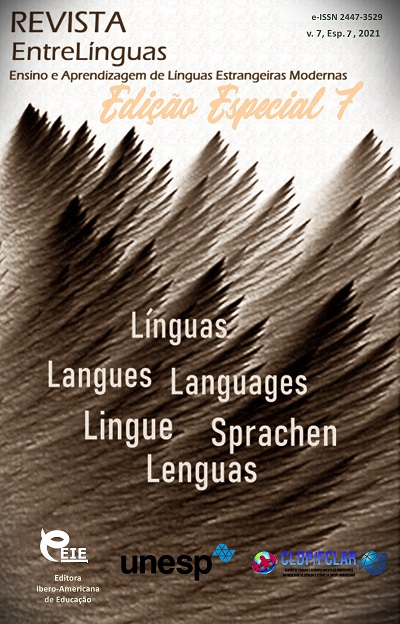Análisis filosófico y cultural del funcionamiento de la institución familiar joven en el contexto de la sociedad postindustrial moderna
DOI:
https://doi.org/10.29051/el.v7iesp.7.16285Palabras clave:
Institución familiar, Valores tradicionales, Familia joven, Transformación, Estereotipos, Género, Relaciones de géneroResumen
El artículo analiza el funcionamiento de la institución de la familia joven en el contexto de la sociedad postindustrial moderna desde un punto de vista filosófico y cultural. Se consideran enfoques para la definición de familia joven. Se investigan los factores que influyen en el cambio de actitud de los jóvenes hacia la institución de la familia. Los autores llegan a la conclusión de que para el funcionamiento y desarrollo sostenible de la sociedad es necesaria la estabilización en el ámbito de las relaciones familiares, ya que la familia es la institución más importante de socialización y transferencia intergeneracional de valores. El Estado debe ser consciente de la importancia de resolver el problema de la formación de valores familiares entre los jóvenes, y en este sentido implementar una política flexible, integral y responsable. Es necesario un sistema bien pensado de medidas destinadas a la estabilización y el bienestar de la familia joven.
Descargas
Citas
ADAMS, B. Families and Family Study in International Perspective. Journal of Marriage and Family, 66, 1076-1088. 2004.
BASKOVA, N.А. Differences in Approaches to the Solution of Demographic Problems in Modern Russia. Herald of the Chelyabinsk State University, 1, 60-71.
GARNIK, М.D. Modern Approaches to the Definition of the Notion of A Young Family and the Classification of Young Families in Russia.– Text: direct // Young Scientist, 19 (257), 308-310. 2019. URL: https://moluch.ru/archive/257/58899/ (Accessed on: 01.09. 2021)
GOLOD, S.I., KHARCHEV, А.G. Family Stability: Sociological and Demographic Aspects. L.: Science, P. 84-90. 136 p. 1984.
GOMOLA, А. Family Law. Academia 2014. P. 57)
ISUPOVA, О. The Phenomenon of Child Free in Society [Electronic Resource]. Available at: http://postnauka.ru/video/31220 (Accessed on 02.20. 2021).
KELLY, M. Women's voluntary childlessness: a radical rejection of motherhood?. WSQ: Women's Studies Quarterly, 37(2), 157172. 2010.
Order of the Government of the Russian Federation of November 29, 2014 N 2403-р “On the Adoption of the Principles of State Youth Policy in the Russian Federation for the period up to 2025”. Guarantor System/https://base.garant.ru/70813498/ (Accessed on 01.28. 2021).
PARSHINA, V.V. Specifics of Young Family and Its Main Problems. The Problems of Present-Day Science and Education, 4 (18), 127-130. 2013.
Philosophical Dictionary. https://vslovare.info/slovo/filosofskiij-slovar/semja/267546 (Accessed on 01.28. 2021).
ROSTOVSKAYA, Т. К. The Processes of Institualization of a Young Family / Т. К. Rostovskaya. Proceedings of Higher Educational establishments. Volga Region. Social Studies, 2 (26). – P 84–90. 2013.
ROZIN, V.М. The Fate of a Young Family: Psychological Reflection on Contemporary Love and Family. – М., 1990. – P. 3.
Single People. The Singles Around Us [Electronic Resource]. Available at: http://bmw825.livejournal.com/30258.htm l (Accessed on 01.28. 2021).
SYSOENKO, V.А. Marital Conflicts. – М.: Finance and Statistics, – 175 p. P.16. 1983.
TANTURRI, M.L. The Determinants of Childlessness Among Men and Women in Later Adult Life in Italy: Do They Differ? New Orleans, 21 p. 2012.
Young Family in Modern Society: Manual for Specialists in Working with Families and Youth / Е. V. Rybak, N. G. Sleptsova, А. B. Fedulova, N. V. Tsykhonchic, Edited by Е. V. Rybak. – М.: ООО “ТR-Print”,– 150 p. P. 9. 2016.
Descargas
Publicado
Cómo citar
Número
Sección
Licencia

Esta obra está bajo una licencia internacional Creative Commons Atribución-NoComercial-CompartirIgual 4.0.
Os manuscritos aceitos e publicados são de propriedade da Revista EntreLínguas. Os artigos publicados e as referências citadas na Revista EntreLínguas são de inteira responsabilidade de seus autores.
Transferência de direitos autorais – autorização para publicação
Caso o artigo submetido seja aprovado para publicação, já fica acordado que o(s) autor(es) autoriza(m) a UNESP a reproduzi-lo e publicá-lo na EntreLínguas, entendendo-se os termos “reprodução” e “publicação” conforme definição respectivamente dos incisos VI e I do artigo 5° da Lei 9610/98. O artigo poderá ser acessado pela rede mundial de computadores (Internet), sendo permitidas, a título gratuito, a consulta e a reprodução de exemplar do artigo para uso próprio de quem a consulta, desde que haja a citação ao texto consultado. Essa autorização de publicação 328 EntreLínguas, Araraquara, v. 1, n .2, p. 323-328, jul./dez. 2015 não tem limitação de tempo, ficando a UNESP responsável pela manutenção da identificação do(s) autor(es) do artigo. Os artigos publicados e as referências citadas na Revista EntreLínguas são de inteira responsabilidade de seus autores.











